ITO Thailand Hygiene Blog
Food Sustainability
Nowadays, food sustainability is considered as an important issue for present and future generations. From where the raw material is sourced, how it is processed, distributed, packaged and how it affects the environment (Sustainability Victoria, 2022).
What is the difference between food sustainability and food security?
The concept of food sustainability is quite challenging to define, but in general, it means the principle of choosing, and consuming foods that have a long-term positive effect on your body and the environment (NCTCE, 2019). As mentioned in the previous blog , both concepts are somewhat similar, sometimes food sustainability has been included as a part of food security, and it is essential for a sustainable development process. However, it can also be discussed as a desirable result following an efficient food security policy. Normally, food security is widely understood as a person-focused concern, while food sustainability is mainly focused on the system and processes. Research from Berry et al. (2015) has shown that even though food security is a more person-focused issue, it also requires policies at national level as well as a cooperation with international organisations such FAO (Food and Agriculture Organization of the United Nations).
Why is food sustainability an important issue?
In a study from Harvard T.H. Chan School of Public Health (2022), food production has the largest impact on the global environmental crisis including climate change, deforestation, and damage to the environment. If current food production continues without any process improvement or developments, there is a high risk of an unsustainable food system, and negatively impact on future generations.
Actions towards a more sustainable food system
From healthy diets, organic food, to sustainable food production (Harvard T.H. Chan School of Public Health, 2022), there are several ways to achieve a sustainable goal. Eating variety of foods is always a better idea and it also reduces the risk of receiving high level of contaminants from a limited source of food because certain foods are more vulnerable to contamination. It is essential to balance your diet by adding more fruits and veggies and lessen processed foods because different sources food can provide more nourishing contents (NCTCE, 2019).
Plant-based eating is another considerable choice. We have discussed that there is no clear evidence of pant-based food’s nutritional benefits compared to a meat-based diet in a previous blog, however, plant-based diet is more sustainable because it has less impact on the environment during production (Sabaté & Soret, 2014). Plant-based meat uses 47%-99% less agricultural land, 72%-99% less water, emits 30%-90% less greenhouse gases, causes 51%-91% less aquatic nutrient pollution than conventional meat (Good Food Institute, 2019).
Food waste is a major factor that affect the environment as well. An estimated amount of food waste is one-third of total food produced (WWF-Australia, 2018), and in Australia, cost of food waste is estimated at $20 billion each year (Department of Agriculture, Water and the Environment, 2021) and various actions have been recommended in order to minimise this number such as customer education by introducing ‘reduce, reuse, recycle’, and encouraging a container deposit scheme (Victorian Government, 2022), Victorian Government has introduced a cash reward for the return of food containers and drink cans, bottles across the state. This scheme also aims to support local groups, charities to raise funds.
How can consumers contribute toward a more sustainable eating?
Initially, buying locally can reduce the total energy and emissions during transport, minimise unnecessary packaging, and a great way to support your local community (Sustainability Victoria, 2022). However, some people who live an urban lifestyle may find it challenging to source a local product, which they can opt for a product with sustainable packaging and look for certifications such as organic labelling because it is known that organic farming has less impact on the environment and biodiversity, as well as a better animal welfare. We can consider supporting businesses with a sustainable policy to minimise the damage to the environment.
A sustainable action towards a sustainable future for food manufacturers
We are all responsible for the consequences from our own actions, and everyone must act now to support each other. Bureau Veritas (2020) has introduced 4 ways to lessen the impact on environment:
•Use eco-friendly packaging: Biodegradable material packaging (such as wood and paper from sustainably managed forests) is preferred.
•Food waste reduction: By improve the efficiency of processing and manufacturing systems.
•Energy & water efficiency improvement: By optimising a sustainable energy and water management system.
•Use sustainable ingredients: A different approach for each category of foods such as minimise soil disruption with a limited use of fertilisers for fruits and vegetables products, free-range farming for a better animal welfare for meat products, avoiding endangered species of fish (Sustainability Victoria, 2022)
ITO Thailand supports a sustainable food system by delivering service customised for your food factory. With ITO Thailand’s solution, you can expect a more efficient and contamination-free solutions for food manufacturing factories, with a personalised service for your factory.
References
Berry, E. M., Dernini, S., Burlingame, B., Meybeck, A., & Conforti, P. (2015). Food security and sustainability: can one exist without the other? Public Health Nutrition, 18(13), 2293–2302. https://doi.org/10.1017/s136898001500021x
Bureau Veritas. (2020, June 3). 4 ways to make food processing more sustainable. Retrieved June 13, 2022, from https://certification.bureauveritas.com/magazine/4-ways-make-food-processing-more-sustainable
Department of Agriculture, Water and the Environment. (2021, October 3). National Food Waste Strategy – DAWE. Department of Agriculture, Water and the Environment – Australian Government. Retrieved June 13, 2022, from https://www.awe.gov.au/environment/protection/waste/publications/national-food-waste-strategy
Good Food Institute. (2019). Plant-based meat for a growing world. Retrieved June 13, 2022, from https://gfi.org/resource/environmental-impact-of-meat-vs-plant-based-meat
Harvard T.H. Chan School of Public Health. (2022, April 28). Sustainability. The Nutrition Source. Retrieved June 13, 2022, from https://www.hsph.harvard.edu/nutritionsource/sustainability
NCTCE. (2019, April 3). What is sustainable food? A guide to eating more sustainably. Retrieved June 13, 2022, from https://nctce.com.au/what-is-sustainable-food-a-guide-to-eating-more-sustainably
Sabaté, J., & Soret, S. (2014). Sustainability of plant-based diets: back to the future. The American Journal of Clinical Nutrition, 100(suppl_1), 476S-482S. https://doi.org/10.3945/ajcn.113.071522
Sustainability Victoria. (2022, January 20). Shop sustainably for food. Retrieved June 13, 2022, from https://www.sustainability.vic.gov.au/recycling-and-reducing-waste/at-home/avoid-waste/shop-sustainably/food
Victorian Government. (2022, March 24). Container deposit scheme | Victorian Government. Retrieved June 13, 2022, from https://www.vic.gov.au/container-deposit-scheme
WWF-Australia. (2018). WWF – Reducing food waste. Retrieved June 13, 2022, from https://www.wwf.org.au/what-we-do/food/reducing-food-waste
Related Post
-
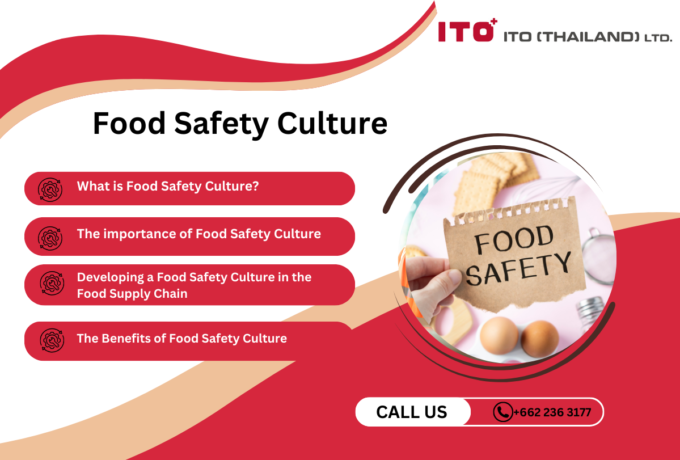
Food Safety Culture
Food safety culture plays a crucial role in safeguarding the company's reputation, ensuring the well-being of its employees, and providing a safe experience for its customers.
-
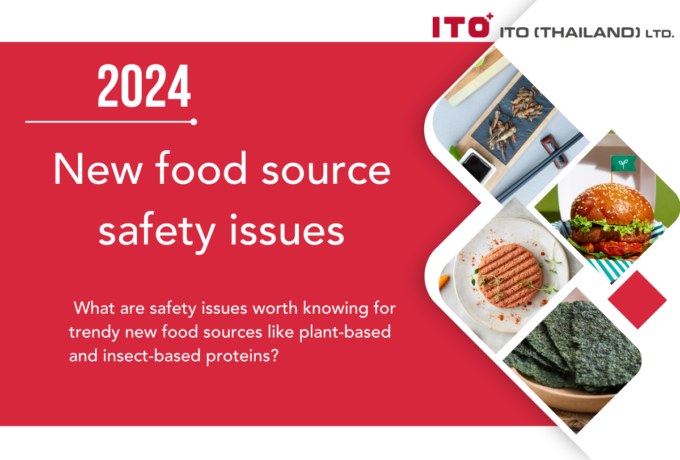
New food source safety issues
What are safety issues worth knowing for trendy new food sources like plant-based and insect-based proteins?
-
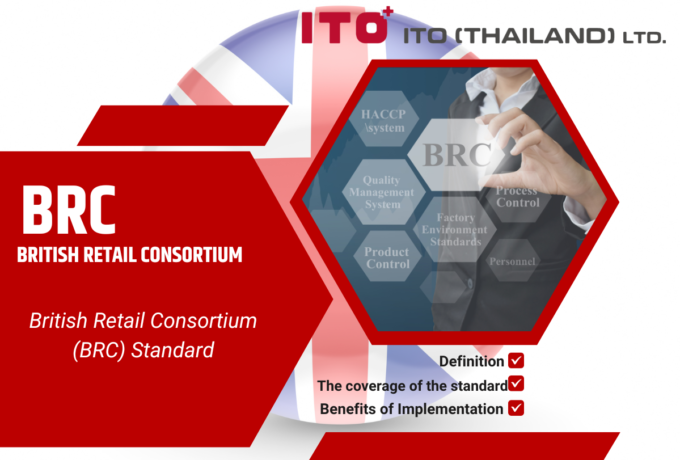
British Retail Consortium (BRC) Standard
Food safety management systems play a vital role in ensuring the production and distribution of safe and high-quality food products to consumers. With the global food supply chain becoming increasingly complex, food businesses must implement effective systems prioritising safety, quality, and compliance with industry standards. A food safety management system encompasses a set of procedures, processes, and controls designed to identify, prevent, and manage potential hazards at every stage of the food production and supply process. This proactive approach not only safeguards consumers' health but also protects the reputation and credibility of food companies in an ever more competitive market.
-
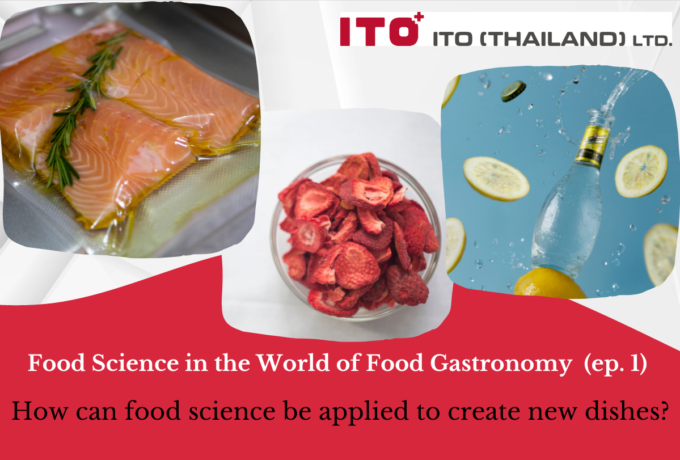
Food Science in the World of Food Gastronomy (Part 1)
How can food science be applied to create new dishes?
-
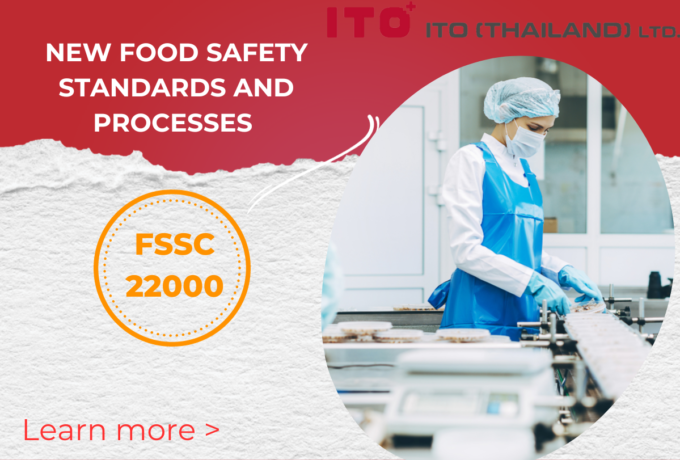
FSSC 22000
Food manufacturers must ensure food safety standards and processes. FSSC 22000 is an official certification program for Food Safety Management Systems (FSMS) recognised by the Global Food Safety Initiative (GFSI). This certification scheme offers a set of guidelines and procedures to ensure uniformity, openness, and safety across your entire supply chain. It applies to all companies operating within the food and beverage industry, ranging from farmers to retailers. By fulfilling the necessary criteria and obtaining FSSC 22000 certification, it is demonstrated that the required standards for food quality and implementing effective processes to manage and mitigate risks associated with food fraud, foodborne illnesses, expensive recalls, and other external threats are met.
-

Food Safety Aspects of Artificial Sweeteners
Artificial sweeteners, also known as sugar substitutes, non-nutritive sweeteners, or high-intensity sweeteners, are artificially produced compounds utilised in place of sucrose (table sugar) to add sweetness to food and drinks. Due to their significantly higher sweetness than regular sugar, only a fraction of artificial sweeteners (200 to 20,000 times less) is required to achieve an equivalent level of sweetness. Since the caloric contribution of these sweeteners, when used in such small quantities, is insignificant, they are often referred to as non-nutritive (4).










